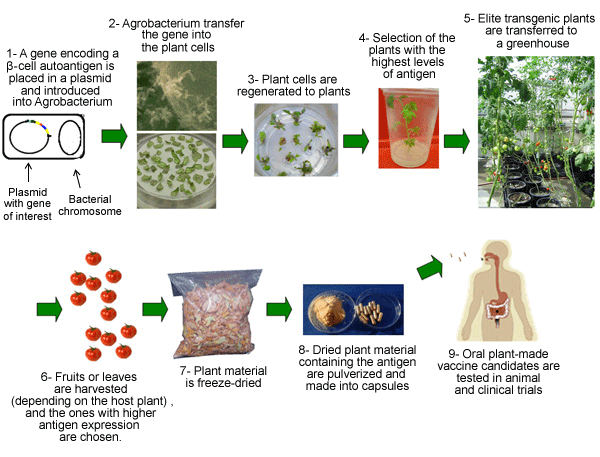
Similar steps are involved in the nuclear transformation of different plant hosts such as tomato, tobacco, lettuce, carrot, etc. Transformation is a genetic alteration of a cell resulting from the direct uptake, incorporation, and expression of exogenous genetic material. In the “natural” transformation of plants mediated by the bacterium Agrobacterium tumefaciens, a plasmid, containing the genes for the autoantigen and a selective agent such as an herbicide (Bialaphos) or antibiotic, is introduced in the bacteria. Then, plant tissue (often leaves) are cut into small pieces, e.g. 10×10 mm, and soaked in a medium containing suspended Agrobacterium which transforms the plant cell by inserting its DNA. Placed on selectable rooting and shooting media, plants will regenerate, and the ones expressing the highest levels of autoantigens (elite lines) will be transferred to a greenhouse. Depending on the host plant, fruits or leaves will be harvested and freeze-dried. Dried plant material can be placed into capsules and used for oral vaccination.